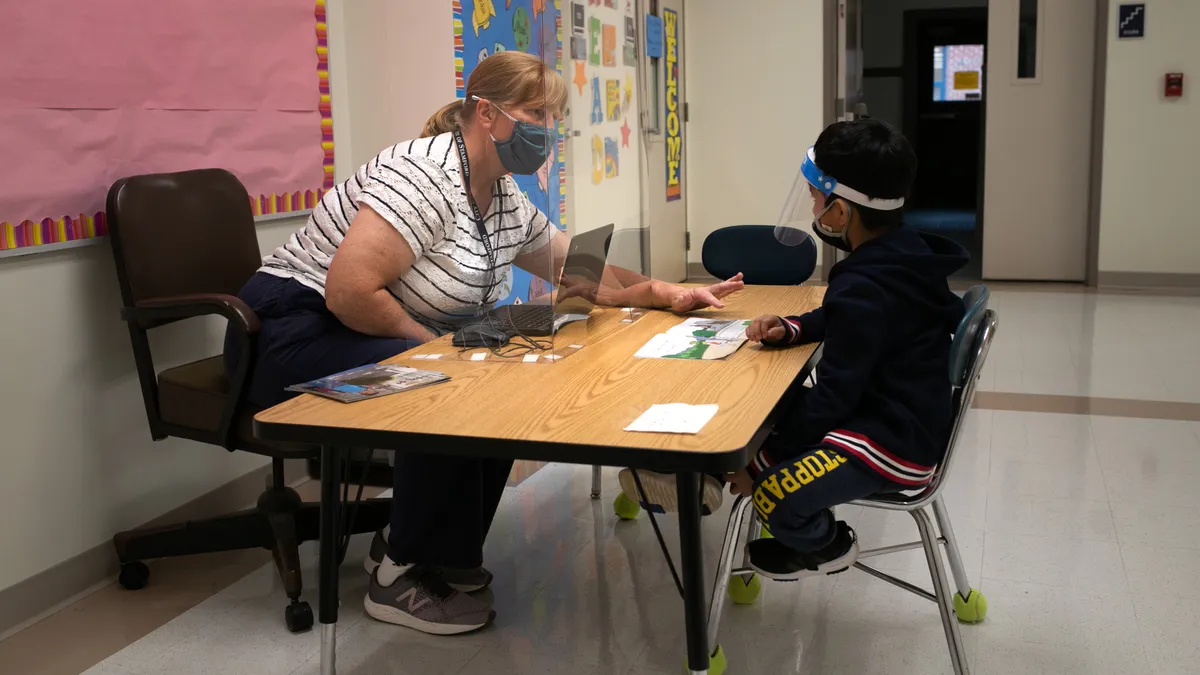Dive Brief:
-
The pandemic has had a disproportionate impact on students with disabilities, but deep understanding of these learning disruptions remains widely unavailable because of limited U.S. research studies that include data specific to students with disabilities, according to a paper from the Center on Reinventing Public Education.
-
A more nuanced collection of data on special education services during the pandemic — such as how the experiences of students identified in different disability categories may have varied — can inform the design of strategies to address barriers to learning and improve practices.
-
The report is the latest in a series by CRPE that aims to document the pandemic’s impact on students and school systems. The series is part of a broader effort called the Evidence Project that seeks to share solutions-based analyses of pandemic hardships in K-12.
Dive Insight:
The lack of research on COVID-19 learning disruptions for students with disabilities caused the paper’s authors to seek literature from broader sources, including news stories and state and district analyses. Among the key takeaways:
-
Students with disabilities had lower levels of engagement and attendance in remote or hybrid learning formats.
-
There was inconsistent delivery of special education and related services due to shortened school days in hybrid or remote learning, limitations of in-person learning or because of the diverse range of students’ needs.
-
There’s the potential for learning losses and regression, however, conclusive evidence is not yet available.
-
Some students thrived in online learning formats, and virtual individualized education program meetings made it easier for parents and educators to connect.
Still, there is much more to learn, said Lauren Morando Rhim, executive director and co-founder of The Center for Learner Equity and a co-author of the report. Particularly, researchers and school systems could benefit by knowing more about the regression of skills for students with intensive needs and how the pandemic has impacted the social and emotional development of students with disabilities.
Other critical areas of study include the impacts to learning for the youngest students with disabilities and for students in high school working on postsecondary transition skills, Morando Rhim said.
School district leaders can help build on this base of knowledge by documenting changes in inclusive practices and how Elementary and Secondary Emergency Relief funds and additional money for the Individuals with Disabilities Education Act are leading to positive outcomes for students with disabilities, Rhim said.
She acknowledges the challenges of this request as the pandemic continues to impact in-person education due to COVID-19’s highly transmissible delta variant. With the unknowns about how students in quarantine will continue learning or get specialized services, school systems will need to be extra attentive to IEP decisions and child find practices, she said.
“This year is going to be messy, and we're not sure what it's going to mean for kids with disabilities,” Morando Rhim said.













